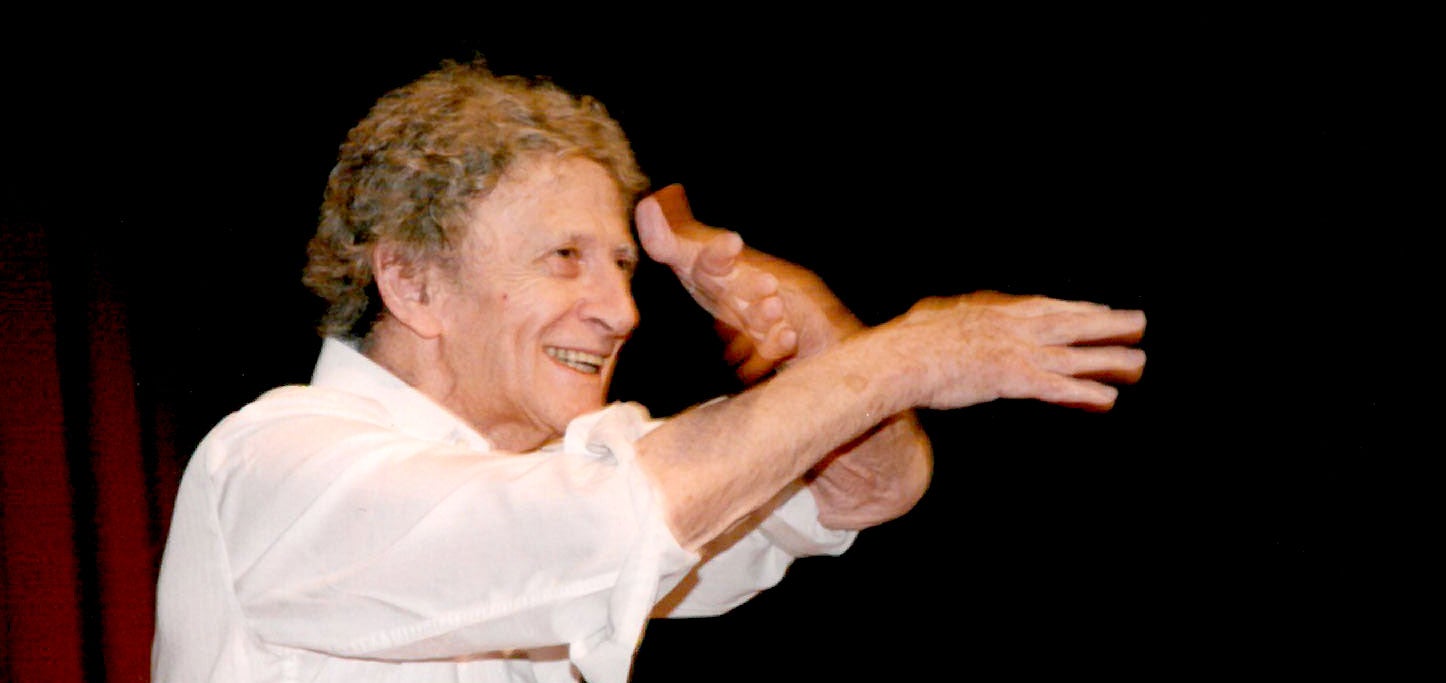The internationally celebrated mime Marcel Marceau became the eleventh recipient of the Wallenberg Medal on April 30, 2001. Rackham Auditorium was standing-room-only that night.
“This year the person chosen to be the Wallenberg Medalist is unlike all previous medalists in that he is famous all over the world,” said University of Michigan professor emerita Irene Butter in her introduction. “Yet he is not widely known for his humanitarianism and acts of courage, for which we honor him tonight.”
Many who learned that Marceau was going to receive the Wallenberg Medal had two questions, said Butter. First, could a mime give a lecture? Second, what had he done to deserve the honor? Butter answered the first question by quoting Marceau: “Never get a mime talking, because he won’t stop.” As for the second question, continued Butter, “Unknown to most, Marcel Marceau experienced early in his life some of the tragedies of World War II. However, until quite recently, he did not speak about those war experiences—experiences which prompted him to risk his life on behalf of others.”
Marceau’s silence is not surprising, according to Butter, herself a Holocaust survivor. “Many, if not most, survivors of the Holocaust were not able to speak about it for nearly half a century,” she said. “Marcel Marceau is known as the Master of Silence—it may have been particularly difficult for him to break the silence about this tragic period in his life.” Despite his public reticence about his early life, however, Marceau has spent more than half a lifetime trying to express the tragic moment through his art.
In 1939 the Jews of Strasbourg, France, where Marceau’s family lived, were given two hours to pack their belongings for transport to the southwest of France. Marcel, who was fifteen at that time, fled with his older brother Alain to Limoges, where they joined the underground. Marcel changed the ages on the identity cards of scores of French youths, both Jews and Gentiles. He wanted to make them appear to be too young to be sent away to labor camps or, in the case of the non-Jewish children, to be sent to work in German factories for the German army. Marceau also adopted different poses, including that of a Boy Scout leader, when he put his life at risk to smuggle Jewish children and the children of underground members across the border into Switzerland.
In his lecture, he said that he had relied on his acting skills to do this. In 1944, while a member of the Resistance in Paris, Marceau was hidden by a cousin. He was convinced that if Marceau survived the war, he would make an important contribution to the theater. Marceau’s father,
a butcher, died in Auschwitz. “If I cry for my father,” said Marceau, “I have to cry for the millions of people who died. “I have to bring hope to people,” Marceau remembered thinking after the war. He had planned to become an artist, but instead decided that he wanted to “make theater without speaking.” He began to study under the great master of mime Etienne Decroux. In 1947 Marceau created Bip, the clown in the striped jersey and battered opera hat, who has become his alter ego.
In his lecture, Marceau spoke of his piece “Bip Remembers,” where Bip goes out of character for the first time, to become “humanity.” Wave after wave of people are killed, until the last wave witnesses enlightenment. “Pray that this millennium will be less cruel than the twentieth century,” said Marceau. Marcel Marceau closed his talk with his gift of mime. Dressed in mufti, he returned to his world of silence, drawing the audience along and ending the evening with the vision of the flight of a butterfly winging to freedom.
Marcel Marceau died in September, 2007 in France.

